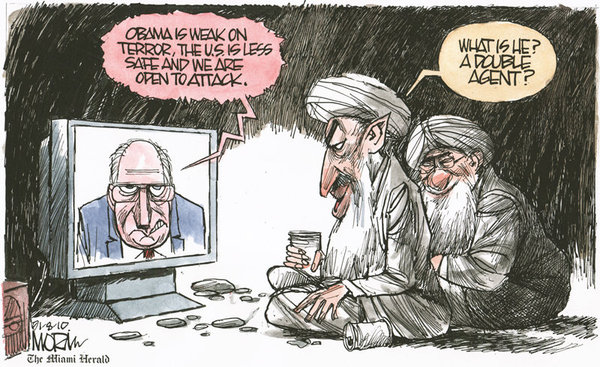President Barack Obama’s willingness to consider moving the trial of self-professed 9/11 mastermind Khalid Sheikh Mohammed out of New York reflects the trouble that Obama’s facing in Congress, not just from Republicans but also from Democrats in this tough midterm election year.
If he capitulates, the consequences could go well beyond the trial’s location, perhaps unraveling Obama’s progress on holding civilian terrorism trials, closing Guantanamo and moving detainees to a prison in the U.S. or pushing ahead with unrelated aspects of his agenda in Congress.
It also could feed one perception that Obama acknowledged in his State of the Union address — that he promised big changes but hasn’t delivered — and another that he didn’t — that he’s a compromiser who always seeks some middle ground.
A yearlong review of evidence against men who are being held as terrorism suspects at Guantanamo has concluded that most of them should be released or transferred to third countries.
The review has angered human rights advocates, however, by concluding that “roughly” 50 of the detainees should be held indefinitely, even though there isn’t enough valid evidence to prosecute them.
Only 35 of the men should face trial, either in civilian or military courts, the review concluded. That’s far fewer than the 60 or 70 cases that the Pentagon’s chief prosecutor has said his unit is preparing to try before military commissions.
The review, whose results have been divulged to a handful of reporters but not publicly announced, provides the first specific numbers for what the Obama administration thinks should be done with the detainees who are still at Guantanamo
